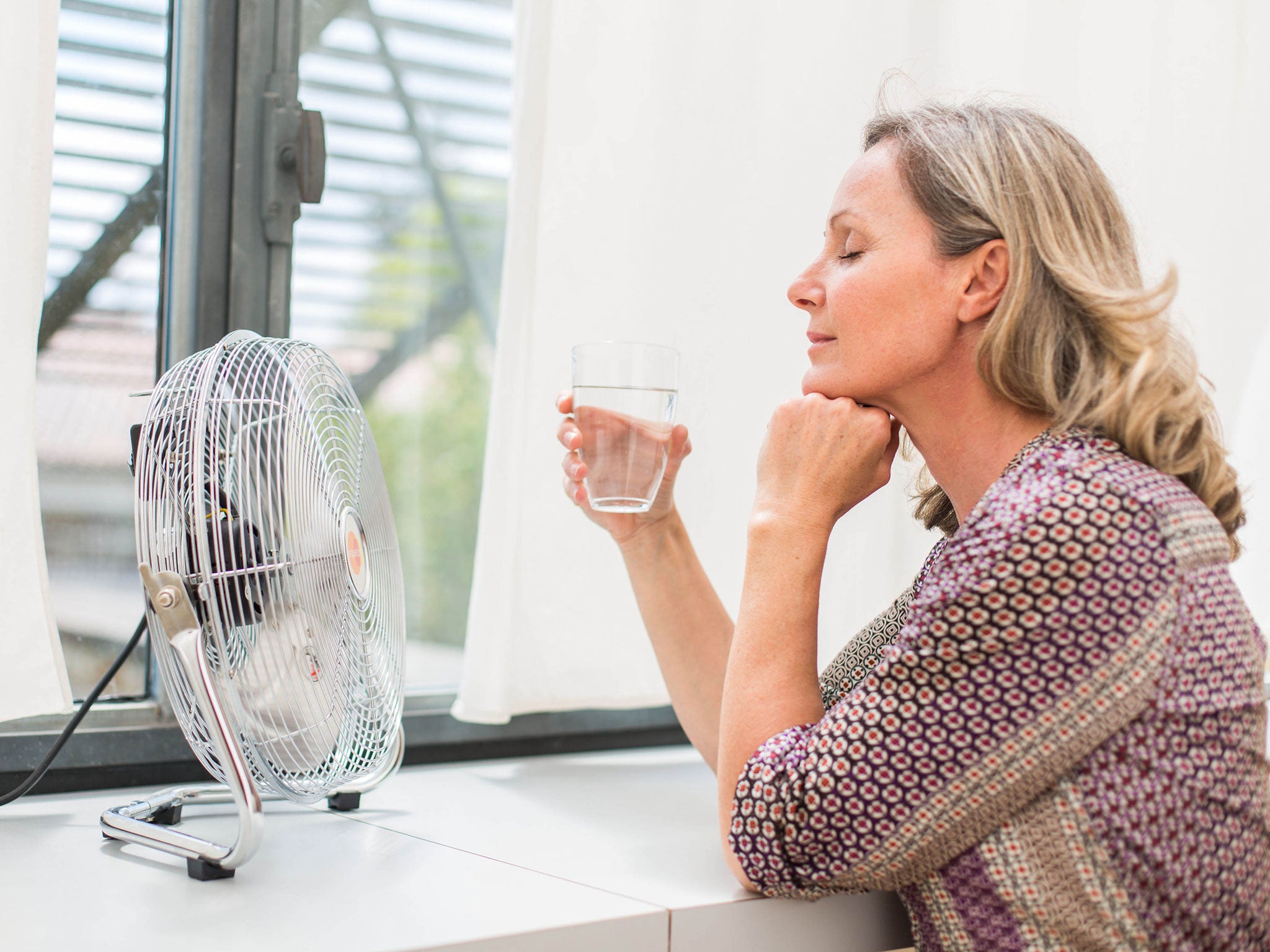Women can experience hot flushes for up to 14 years, according to menopause study
The median length of time women suffered hot flushes was 7.4 years

Hot flushes can plague menopausal women for as long as 14 years, new research shows.
The earlier women begin experiencing hot flushes, the longer they tend to last, while other factors linked to longer lasting symptoms include younger age and higher levels of anxiety.
The study, published in the medical journal JAMA Internal Medicine, followed 1,449 women who experienced frequent hot flushes and night sweats for seventeen years between 1996 and 2013.
None of the women in the study were on hormone treatments, had undergone a hysterectomy, or had had both ovaries removed.
It found the median length of time women suffered hot flushes was 7.4 years, though this rose to a high of 14, and differed significantly between different ethnic groups.
The study is one of the most racially and geographically diverse published on the topic, following women from seven American cities.
It found African-American women endured the longest-lasting symptoms for a median of 10.1 years, double the duration reported by Asian women.
Hispanic women and non-Hispanic white women experienced hot flushes for a median of 8.9 and 6.5 years respectively.
In addition to ethnic variances, women whose hot flushes began while they were still having regular periods or were in early perimenopause reported symptoms for 11.8 years.
Around nine of these years were shown to occur after menopause had begun, which was almost three times the average of 3.4 years for women who began to experience hot flushes only after their periods stopped.
Only a fifth of the cases in this study began after menopause, with one in eight women beginning to get hot flushes while still having regular periods.
“If you start later on, it’s a shorter total duration and it’s shorter from the last period on,” Nancy Avis, one of the study’s authors and a professor of social sciences and health policy at Wake Forest Baptist Medical Center, told the New York Times.
The research also found that women who had lower educational levels, greater perceived stress and reported more anxiety and depression also had longer lasting symptoms, but it is currently unclear whether there are any causal links.
In the UK the average age of menopause is 51 and an estimated 75 per cent of women will experience hot flushes or night sweats.
These can be accompanied by other symptoms such as nausea, dizziness and a general feeling of being unwell.
Subscribe to Independent Premium to bookmark this article
Want to bookmark your favourite articles and stories to read or reference later? Start your Independent Premium subscription today.

Join our commenting forum
Join thought-provoking conversations, follow other Independent readers and see their replies